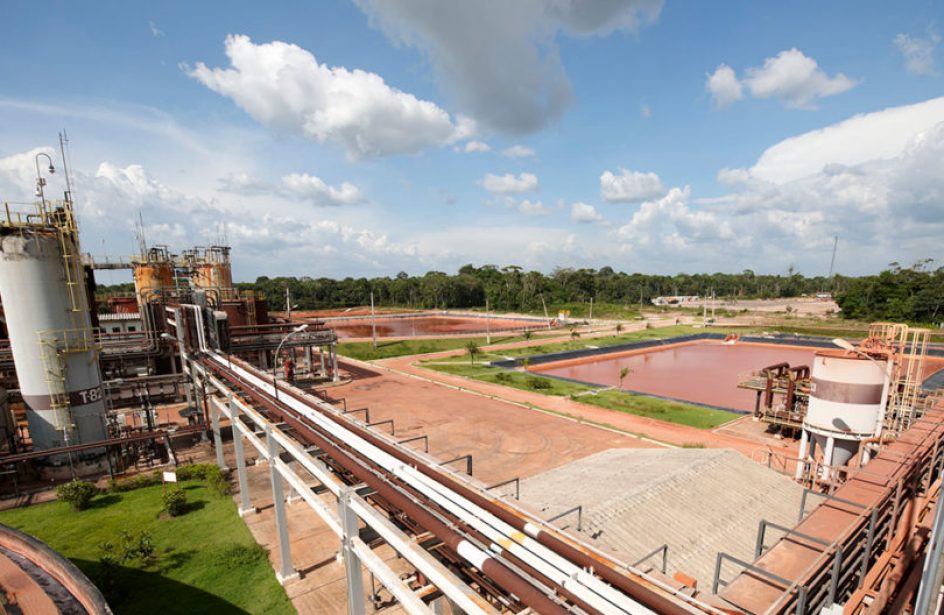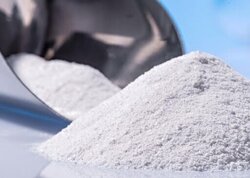
Alunorte, Norsk Hydro, And Ministerio Publico Federal File Petition To Lift Embargo On New Bauxite Residue Deposit Area

The parties filed a joint petition to allow Alunorte to resume work on installing and commissioning bauxite residue disposal area (DRS2) after Alunorte, Hydro, Secretaria de Meio Ambiente e Sustentabilidade Pará (SEMAS), and Ministerio Publico Federal signed a Memorandum of Understanding outlining the steps necessary to go forward on the installation.
Per the MoA, Alunorte will conduct a socioeconomic study to determine the likely result of completing and employing DRS2, and the firm has pledged to take the necessary compensatory measures if the study finds that any nearby community may be affected. Alunorte has also promised to involve the Ministerio Publico Federal should any new licenses be necessary.
“This is an important step forward, arising from our ongoing dialogue with the authorities,” noted John Thuestad, Executive Vice President of the Bauxite & Alumina business area. “The DRS2 and press filters is the most sustainable bauxite deposit technology available in the world, and the only long-term solution for Alunorte operations.”
The 6.3-million-metric-ton-per-annum alumina refinery has been operating under severe constraints for over a year after torrential rains and resultant flooding in the area raised fears of a red mud release from the plant’s retention ponds, though several studies, both internal and conducted by third parties, found no evidence that such a release occurred.
Alunorte has been operating at near-normal capacity since late May after the Federal Court lifted an embargo keeping production at 50 percent. The plant continues to utilize the original bauxite residue deposit area (DRS1), and it says it continues to abide by the technical agreement (TAC) signed with Ministério Público and SEMAS.


Trump weighs using $2 billion in CHIPS Act funding for critical minerals

Electra converts debt, launches $30M raise to jumpstart stalled cobalt refinery

Codelco cuts 2025 copper forecast after El Teniente mine collapse

Barrick’s Reko Diq in line for $410M ADB backing

Abcourt readies Sleeping Giant mill to pour first gold since 2014

Pan American locks in $2.1B takeover of MAG Silver

SQM boosts lithium supply plans as prices flick higher

Nevada army depot to serve as base for first US strategic minerals stockpile

Viridis unveils 200Mt initial reserve for Brazil rare earth project

Kyrgyzstan kicks off underground gold mining at Kumtor

Kyrgyzstan kicks off underground gold mining at Kumtor

KoBold Metals granted lithium exploration rights in Congo

Freeport Indonesia to wrap up Gresik plant repairs by early September

Energy Fuels soars on Vulcan Elements partnership

Northern Dynasty sticks to proposal in battle to lift Pebble mine veto

Giustra-backed mining firm teams up with informal miners in Colombia

Critical Metals signs agreement to supply rare earth to US government-funded facility

China extends rare earth controls to imported material

Galan Lithium proceeds with $13M financing for Argentina project

Kyrgyzstan kicks off underground gold mining at Kumtor

Freeport Indonesia to wrap up Gresik plant repairs by early September

Energy Fuels soars on Vulcan Elements partnership

Northern Dynasty sticks to proposal in battle to lift Pebble mine veto

Giustra-backed mining firm teams up with informal miners in Colombia

Critical Metals signs agreement to supply rare earth to US government-funded facility

China extends rare earth controls to imported material

Galan Lithium proceeds with $13M financing for Argentina project

Silver price touches $39 as market weighs rate cut outlook


















